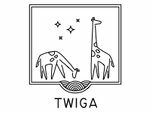TWIGA experiments for tuning numerical weather prediction models

Within TWIGA, in situ GNSS time series and satellite SAR maps of atmospheric water vapor contents will be used to enhance the predictability of convective storms. This will be achieved by assimilating these products into Numerical Weather Prediction Models (NWP). The Weather and Research Forecasting (WRF) model has been selected to perform the assimilation experiments. […]
From large to small or from small to large?

Lessons from the use of mobile apps and geodata apps for smallholder farmers Satellite and geodata applications for smallholder agriculture are quite new, more general apps for smallholders that make use of mobile technology are around a bit longer. A number of these mobile initiatives have been evaluated (have a look at www.gsma.com) and it […]
The TWIGA information service infrastructure

HydroNET as the gateway to water, weather and climate data for Africa One of TWIGA’s key objectives is to deliver more than 20 geo-services for Africa by the end of the project. These information services will primarily be based on existing data sets from TWIGA partners and data collected within the project. The TWIGA data […]
Improper waste management as a major cause of flooding, and how to fix it

Driven by an expanding population following rapid urbanization, global waste generation is growing at a fast pace with plastic waste being a problematic aspect. The growing use of plastic as an essential resource has caused many environmental problems. Not only are the seas being contaminated, but cities are also facing big problems. In the city […]
Low-cost GPS for rain forecasts

GPS satellites provide users with data useful for positioning, navigation and Earth observation. GPS stations, deployed at fixed locations, are used mainly to monitor ground or structure movements. The same stations can be used also to measure the amount of water vapor in the atmosphere, which is a crucial parameter to improve weather forecasts. Several […]
TWIGA management, a look behind the scenes

The TWIGA project started over a year ago when all TWIGA partners signed a Grant Agreement with the European Commission, consisting of a description of the action and legal parts. If TWIGA were a restaurant, the Grant Agreement basically is our promised menu (including a lot of terms at the back). In our previous TWIGA […]
Mobile phone services for farmers

The limited amount of extension services for farmers. Using traditional farming practices and mostly relying on manual family labor, farmers receive only two extension visits (often at the start of the year and towards the end) due to limited resources and poor road infrastructure to villages. The absence of this timely agricultural information makes it […]
Big Data Analytics Project to transform Agricultural Insurance in Africa using Climate Data

Weather affects everything. It is both an essential resource and a significant risk factor for life on Earth. What’s more, the weather is one of the most unpredictable aspects of human existence, yet we have no choice but to try our hand at predicting it. After all, our very lives depend on our having ample […]
Flying Sensors, a Catalyst for Revolution in Farming

How can drone technology support our farming activities? This was the question that Kumasi farmers had when they went into the field for a drone workshop. Under the TWIGA Project, a consulting firm from the Netherlands called HiView was contracted by Future Water to deliver training on Flying Sensors to support Farmers’ Decision Making and Flood […]

